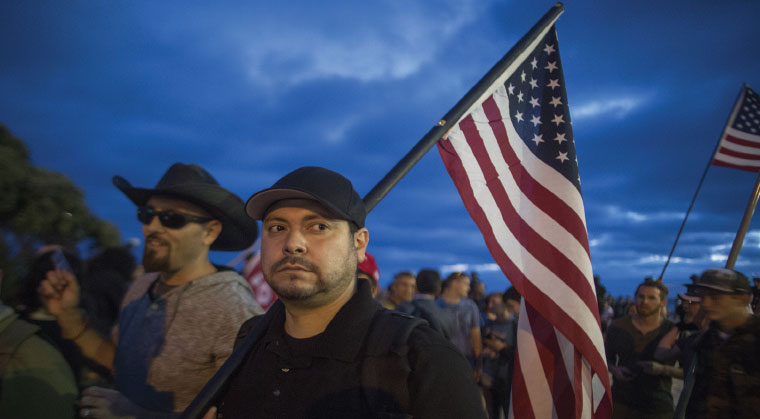Obama’s Weakness Is the Donald’s Trump Card


Like it or not Hillary Clinton will still be riding President Obama's coattails in the November election
Ever since the Gallup Poll began tracking presidential approval ratings in 1945 there has been only one US president who has left office with a higher ranking than when he entered and his name was Clinton. Bill Clinton to be precise.
While presidents such as John Kennedy and Ronald Reagan managed to hold their own during their terms of office without too many ups and downs most presidents experience wide swings — usually to the downside.
President Obama peaked way too soon.
His highest approval rating of over 60% came in his first week of office when he enacted a $787 billion economic stimulus to bail out the economy. It is a figure he never came close to surpassing. Even after knocking off Osama bin Laden in 2011 Obama’s approval rating did not top 50% which is right where it is today.
Obama’s standing takes on new relevance as Republicans and Democrats gather at their conventions in Cleveland and Philadelphia over the next two weeks to nominate presidential candidates who share only one thing in common: more voters dislike them than like them. At press time some 55% of US voters found Hillary Clinton not to their liking while about 60% felt the same way about Donald Trump.
“With Obama’s approval rating somewhere around breakeven historically that points to a close race in November” says Sean Trende senior elections analyst for Real Clear Politics.
While pundits tend to frame elections as choices between two candidates — especially this year when both are unpopular — Trende says the evidence is overwhelming that presidential elections are also referendums on the sitting president. “Voters look at the party in power and how they’re governing and decide if they want to change that or not” he says. “In 2008 John McCain was generally well regarded but Bush’s approval ratings were so abysmal they dragged him down.”
The combination of Obama’s mediocre approval ratings and the perception that a Hillary Clinton administration would be equivalent to an Obama third term works in Trump’s favor.
“The fact that Trump is less popular matters less and that’s why the polls show a relatively close race” Trende says. “But if Obama was to move to 55% from 50% it would make it difficult for any Republican in the fall not just Trump.”
William Mayer an associate professor of political science at Northeastern University would agree with Trende and suggests that any polls of Obama approval ratings will be much more telling the closer we get to November. “Presidential approval ratings when taken shortly before a presidential election [in October for example] can serve as a very good indicator of how the election will turn out ” Mayer noted. “Early approval ratings [in June or July] still tell us little or nothing about the outcome of the next election.”

Photo: AFP/Imagebank
Both Trump and Clinton will have many chances to either boost or damage their ratings between now and the end of the month. Voters will sharpen their judgments based on who the candidates choose as running mates how smoothly the party conventions unfold and the nominees’ acceptance speeches on closing night.
A Pew Research survey released in the first week of July shows both Trump and Clinton have a mountain to climb. Overall satisfaction with the choice of candidates is at its lowest point in two decades. Currently fewer than half of registered voters in both parties — 43% of Democrats and 40% of Republicans — say they are satisfied with their choices for president.
A survey by Rasmussen Reports — one of the only major pollsters that show Trump with a lead — suggests that 6% of the voters will stay home in November and that 15% would still prefer a different choice. But despite the last ditch efforts of the anti-Trump forces and the stubbornness of Bernie Sanders it doesn’t look as if they’re going to get their wish.
Pundits who are already forecasting November’s outcome based on today’s polls and approval ratings resemble the handicapper who bets a horse and starts heading to the cashier’s window when his steed is ahead at the top of the stretch.
With four full months to Election Day it’s too early to call the race especially between two highly competitive people who will run cutthroat campaigns not only because they want to win but because they dislike each other more than most Americans dislike them.
Oops! We could not locate your form.













